Arshaya Sood, a Master’s student in the Department of Urban Planning and Design at Harvard Graduate School of Design, spent her summer in Mumbai, India, conducting fieldwork in the Urban Development department at the World Resources Institute Mumbai.
Her work, part of an LMSAI student grant, explored urban planning and urban development efforts on the Mumbai Climate Action Plans Urban Greening & Biodiversity action track, under Cities4Forests initiative. The program works with the city and state governments and the community to improve greening efforts within underserved areas of Mumbai. Arshaya shared her experience in the Q&A below.
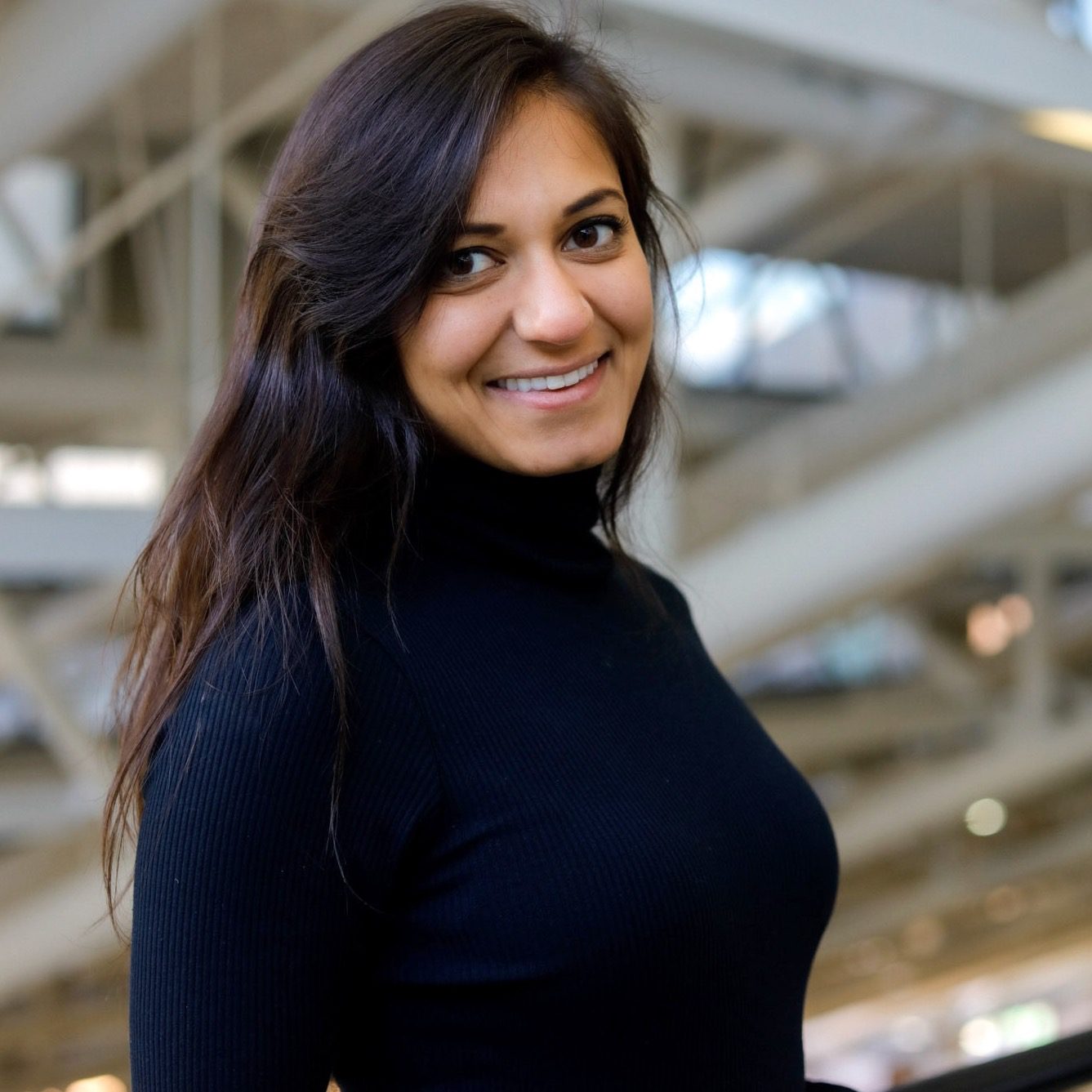
Mittal Institute: Thanks for sharing your experience, Arshaya! How did you settle on this research topic, and what were your goals for your work?
Arshaya Sood: My goal this summer was to understand the power of a design background to better inform how policies play out on the ground in an international development setting. This is the reason I chose World Resources Institute (WRI) to house my internship and complete my research for my dissertation. WRI is an international think tank and Mumbai WRI office specifically advised the government on the Mumbai Climate Action Plan (MCAP) and assisted with the implementation projects, so it was the perfect fit!
I used my student grant to primarily cover the expenses for the preliminary fieldwork in India for my potential dissertation project. I had conceptualized my research work as an exploration of how foundational literacy and numeracy (FLN) became an indicator of learning quality in India and the ways in which government and non-government actors make sense of it. For my fieldwork, my goals were to conduct at least 10 semi-structured interviews over the summer and at least three public school observations in various contexts. These interviews involved speaking to former and current educators, teachers, public officials, and NGO and think-tank employees to understand their engagement with, and operationalization of, recent educational policies relevant to FLN.
Mittal Institute: What was your day-to-day experience like?
Arshaya Sood: I was living in Andheri West, a neighborhood in northern Mumbai. Each morning, I would wake up and go for a run in my local neighborhood, which was full of trees and unusual for Andheri West. It was peak monsoon season so my runs would often be accompanied with heavy rains. I would then quickly make breakfast and run out the door to catch the local train that would take me to the other side of Mumbai. I would often end up eating my breakfast on the bumpy auto rickshaw ride to the train station, meaning half my breakfast ended on my lap! Once I arrived at the Andheri West station, I would fight my way onto the train. I had one hour train ride to the office. I would always find the women’s section of the train, which was usually packed. With no phone service, I picked up reading and got through two Indian novels (which I actually bought on the train itself) throughout the summer! Once I arrived at Curry Road station, the office was just a two-minute walk away.
As mentioned, I was working at an international think tank, World Resources Institute. My role was very versatile and included urban planning and policy with a focus on environmental sustainability, health, and community engagement. During this 10-week internship, I consulted Maharashtra government on the Climate Action Plan, while simultaneously coordinating efforts on the ground by working with local NGOs in Mumbai slums across the city. This work was focused on greening efforts around Mumbai to satisfy funding given by the Caterpillar Foundation and to reach the Climate Action Plan goals set by the Maharashtra government. My role at WRI was to go beyond planting trees and address trash management, water sourcing, and food production within local underserved slum and resettlement communities. I worked within three resettlement slums of Mumbai, including Cheeta Camp, Ambojwadi, and Lullubhai Compound. We started each morning with a team meeting internally with my four coworkers. We were all females – girl power! Then we would follow up with our external consultants, such as NGOs and educational institutions. Lunch was the best because we would all take out our tiffins and share our food!
My role at WRI was to go beyond planting trees and address trash management, water sourcing, and food production within local underserved slum and resettlement communities.
My day-to-day work schedule varied as we had days where we were on site at the slums but some days we stayed to debrief and work within the office. There were intense days where we had a government meeting. For this, we would take the local train down to the tip of Mumbai and attend meetings dealing with approvals process for the planting of the trees. It was something new of me, I learned the government approvals process moves very slowly in India! After these meetings, it would be around 6:00 pm and I would start the journey home. This usually took two hours during rush hour, going from train to auto rickshaw. When I got home, our wonderful chef would have prepared some combination of daal, subzis, and rotis for the family!
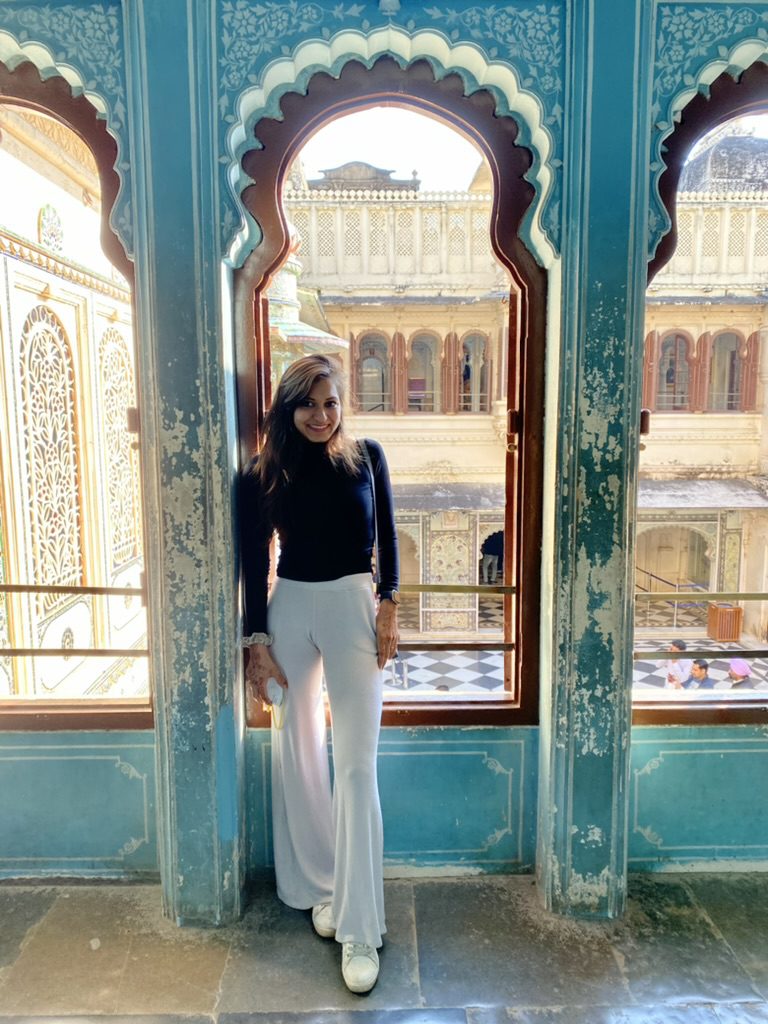
Arshaya poses in India.
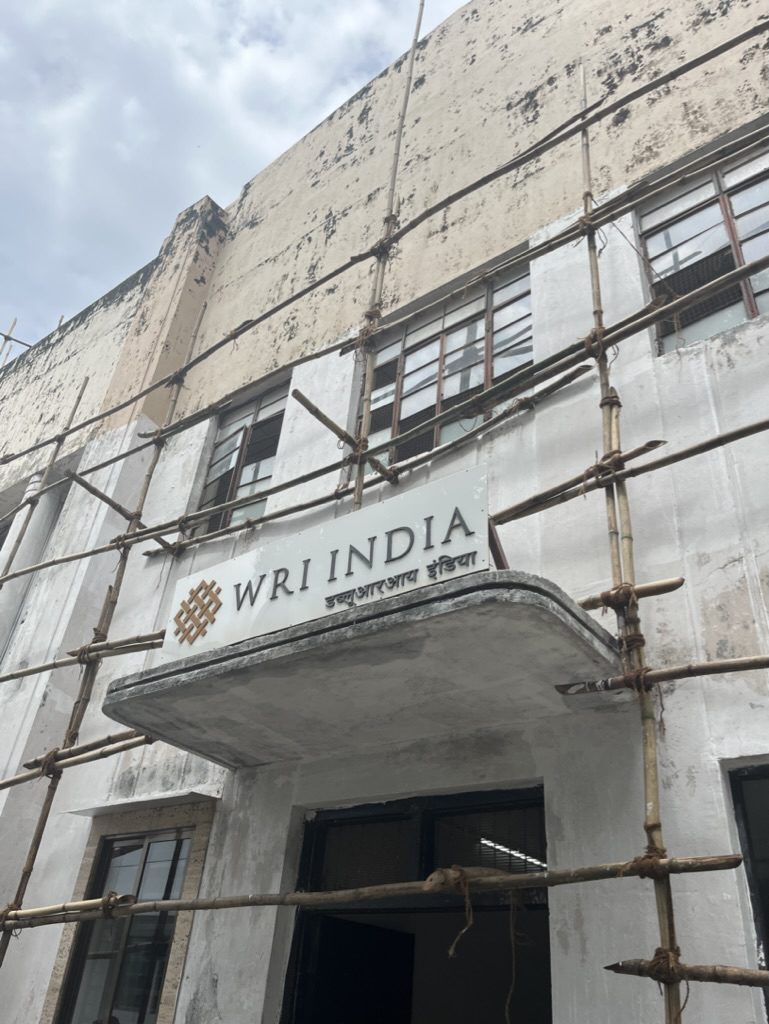
The exterior of World Resources Institute.
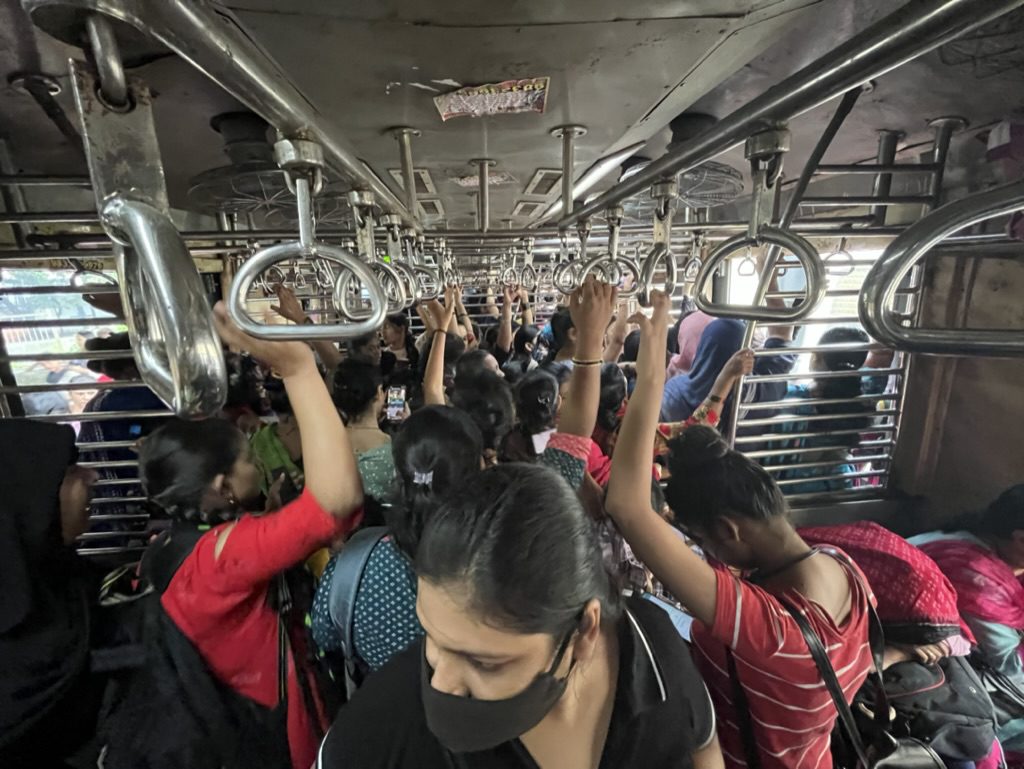
Arshaya’s daily commute via bus.
Mittal Institute: What were your site visits like?
Arshaya Sood: The site visits were physically and emotionally intense. I went to many with my four teammates and some alone. The slum resettlement camps were composed of informal building techniques and makeshift infrastructure, meaning they lacked connections to basic services such as water and sewer systems. There were no roads and most of the homes were composed of waste materials such as cardboard, tin, and plastic. I went inside a few homes, and some had proper flooring and TVs inside! Despite all the unorganized feel of the space, the slums managed, and I could feel the strong sense of community. Since it was the middle of monsoon season, the slums would be ankle deep with water, so the site visits were a bit messy. However, I was always welcomed by gracious community members who gave me the run-down of the community’s needs.
The most impactful experience of my summer was having the opportunity to go into the slums and work directly with community members on challenges they faced, such as trash management, food shortages, access to clean water, managing floods from the monsoons, and the list goes on! After our site visits, we would take in consideration what we heard from the community members and work on solutions we could offer through creating maps, drawings, and thinking of ways to improve their livelihoods. We worked with them throughout the whole process of design thinking and brainstorming till implementation!
The most impactful experience of my summer was having the opportunity to go into the slums and work directly with community members … we worked on solutions [like] creating maps, drawings and thinking of ways to improve their livelihoods.
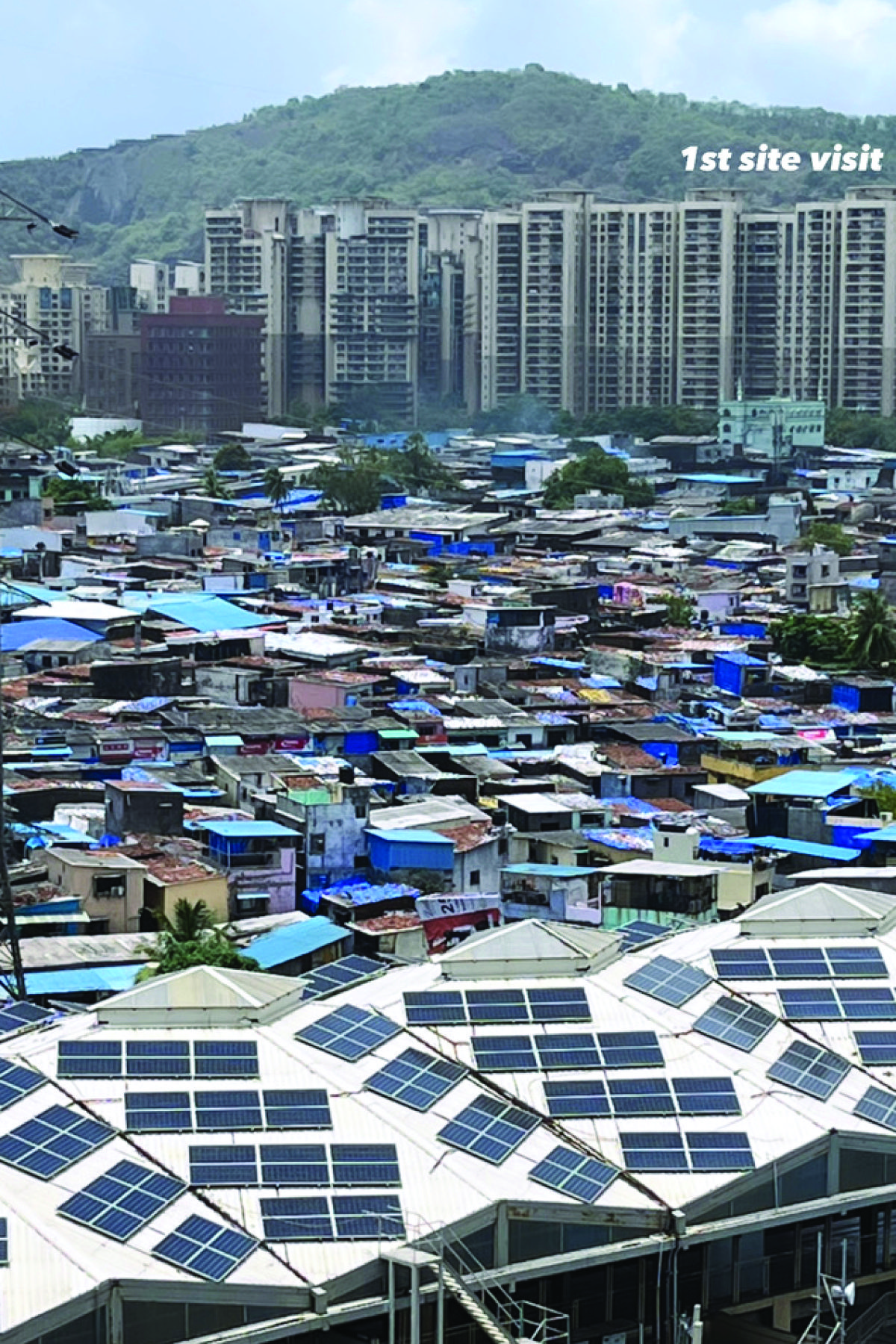
An aerial view of Cheeta Camp.
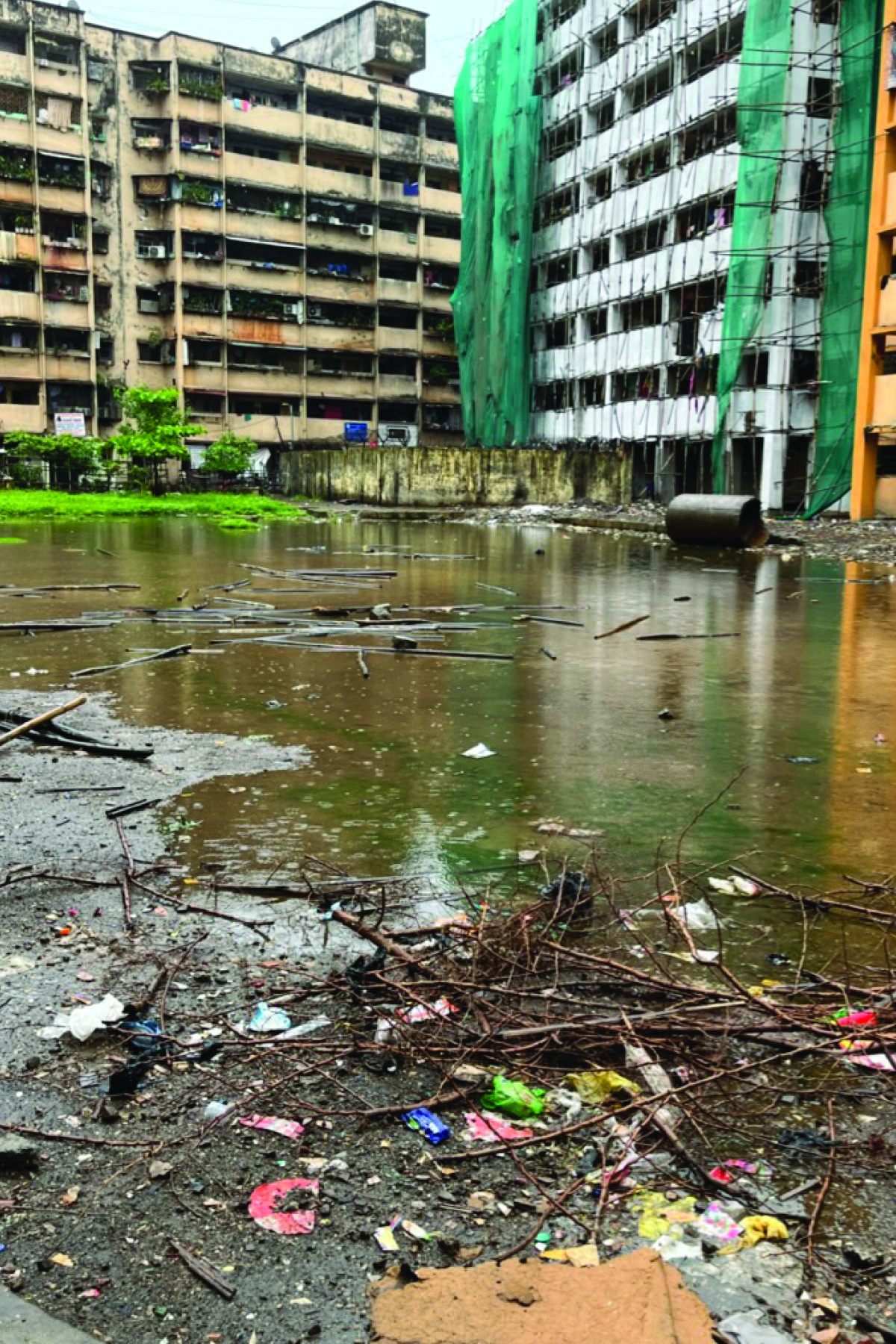
Arshaya’s project in Lullubhai compound.
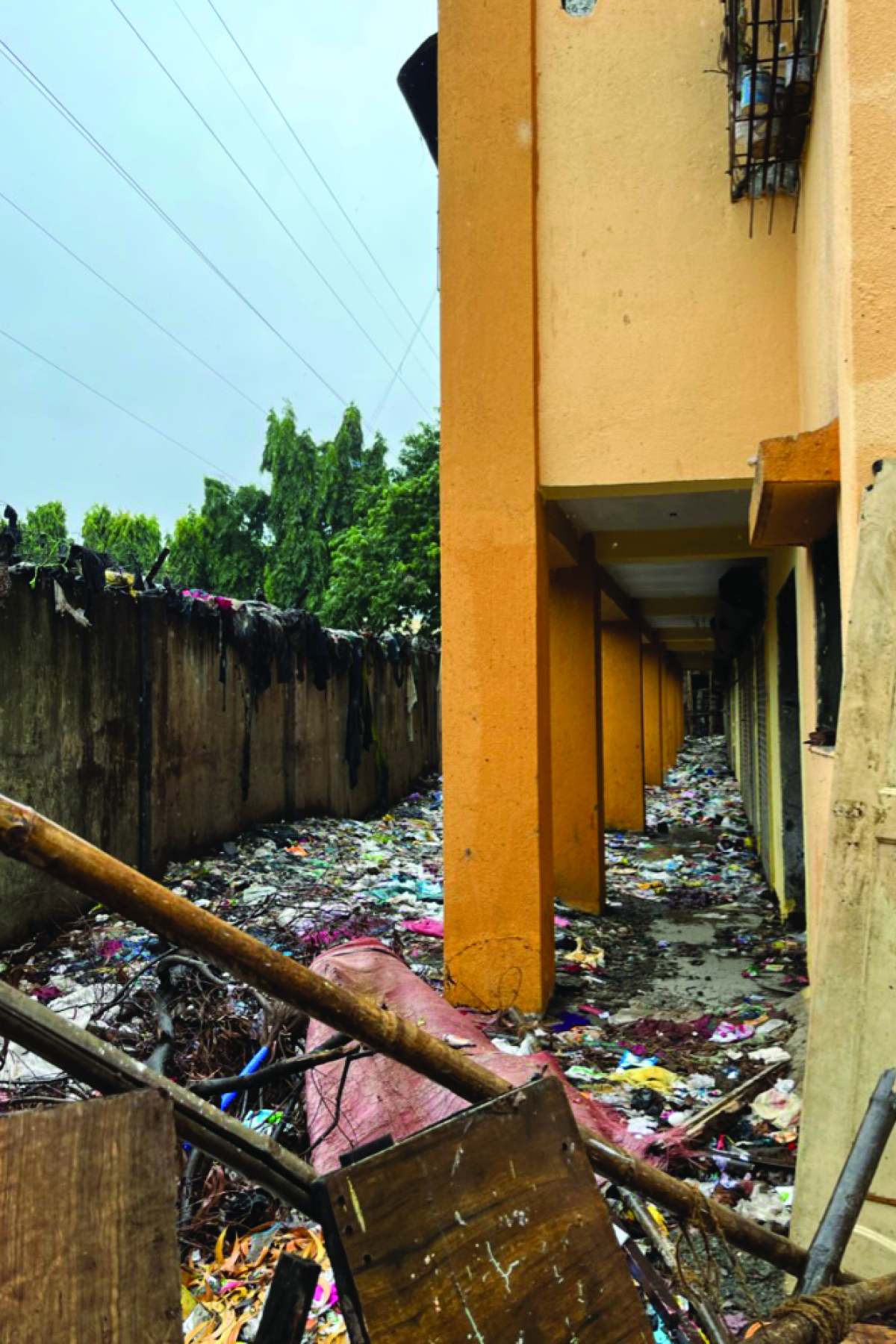
A look at Lullubhai compound.
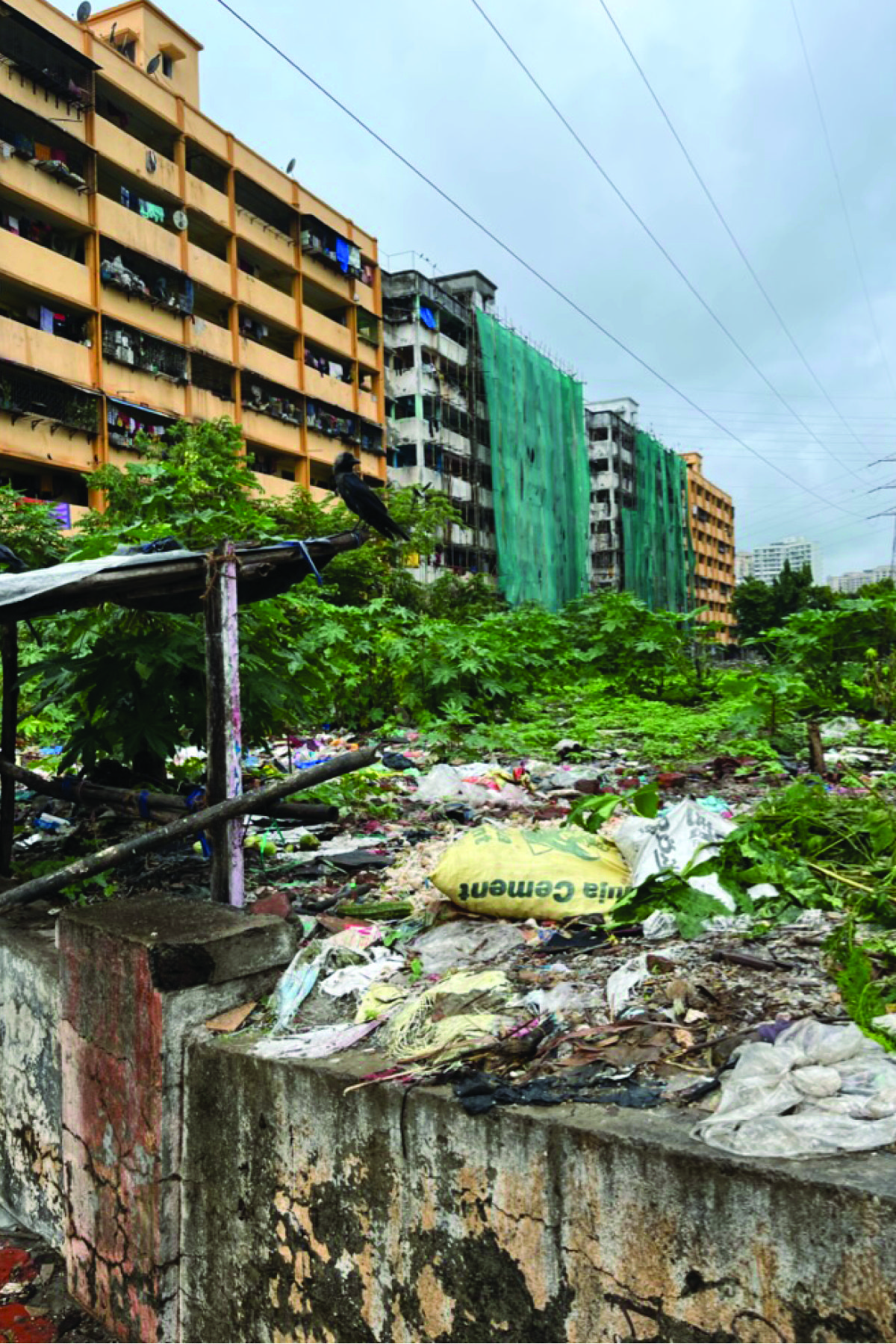
Lullubhai compound.
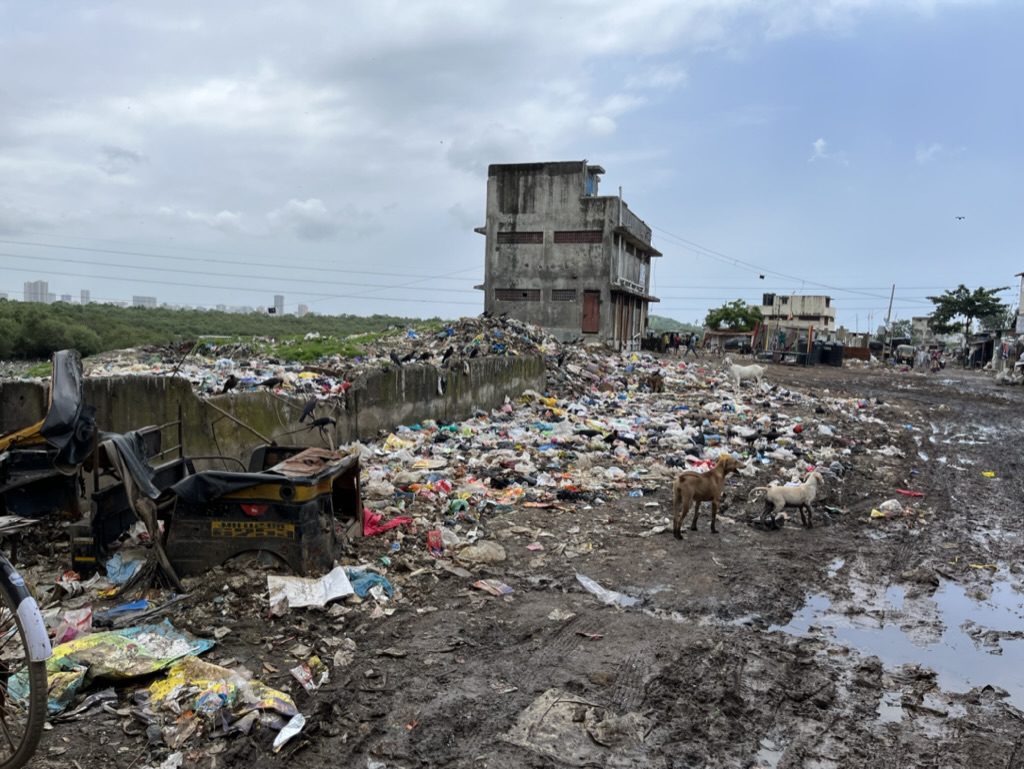
A view of Cheeta Camp.
Mittal Institute: What was the most memorable part of your summer?
Arshaya Sood: The most memorable moment of my internship was at a community meeting at Lullubhai compound. We had been planning this community meeting since my first week at WRI, so it felt full circle to conduct the community meeting at the end of my 12 weeks in India! The meeting was at Lullubhai compound and I was shocked at the turnout. Over 20 community members came and voiced a variety of concerns, including lack of recreational spaces, green space, flooding risks, and trash management. When we are aware of the problems the community wants to be involved in improving, we can make more informed design decisions and plan more strategically for long-term interventions. The meeting got heated and I saw the passion in the community members eyes. I was excited to see the citizens participate so actively in the community meeting. It showed me the work we do deeply impacts others’ lives, and it motivated me to continue this type of work!
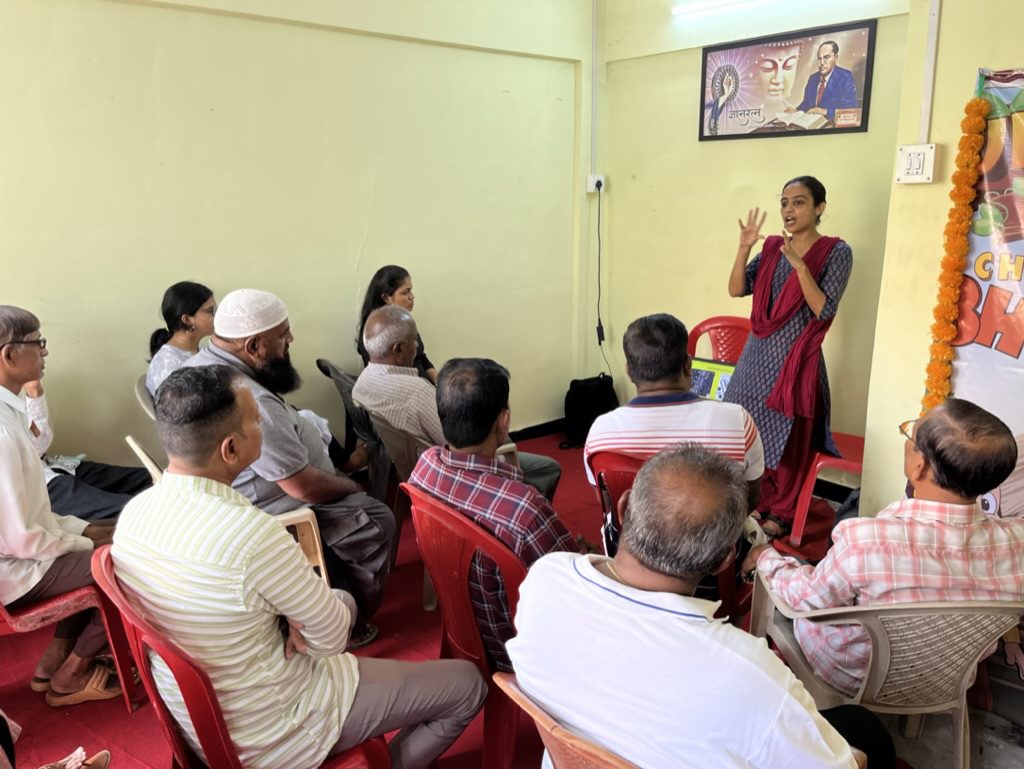
The community meeting, one of Arshaya’s memorable moments.
Mittal Institute: What are your career goals?
Arshaya Sood: I want to work in urban policy and/or consulting after I graduate. This internship was impactful to my career trajectory. I was exposed to a different level of poverty that I had never experienced, and it made me motivated to work on sustainable development and mitigation and adaptation efforts for climate change within developing countries within the private or public sector.
